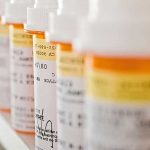Methadone overdose symptoms and signs include respiratory depression, clammy skin, gurgling sounds, unconscious or comatose state, and pinpoint pupils.
Methadone is a long-acting opioid medication. Methadone treatment is a popular method for reducing cravings and symptoms of opioid withdrawal. However, methadone is a potent painkiller in its own right and has the potential for substance abuse.
Taking a large amount of methadone, taking methadone without a prescription, or taking it in a manner not prescribed are forms of illicit methadone use.
There are approximately 3,000 methadone overdose deaths per month in the United States. This number is lower than other opioids like hydrocodone, oxycodone, and fentanyl, but is still a point of concern.
Methadone Overdose Symptoms
The symptoms, or effects of methadone overdose on the victim, center around the body’s central nervous system.
When methadone reaches toxic levels in the body, the brain may not be able to regulate vital functions, leading to overdose symptoms such as:
- respiratory depression
- low energy levels
- feelings of intoxication
- low blood pressure
- difficulty staying awake
Respiratory depression and other overdose symptoms may not set in until hours after the pain relief properties of methadone have disappeared. This is because methadone has a long half-life, and absorption times of the drug are long.
Before an overdose, victims may experience the side effects of methadone that do not constitute an overdose. These side effects may include constipation, sedation, and dry mouth.
Methadone Overdose Signs
Signs of methadone overdose that can be visible to others include:
- shallow breathing
- weak or complete lack of a pulse
- severe drowsiness or a comatose state
- spasms and twitches
- confusion
- dizziness
- vomiting or gurgling
- pinpoint pupils
Patients who mix methadone with alcohol may be at a significantly higher risk of a drug overdose.
Methadone Overdose Treatment
Civilians can assist a methadone overdose victim by calling for help and administering naloxone if they have the means.
After a patient recovers from a methadone overdose, they may be recommended for substance use disorder treatment.
Naloxone
Opioid overdose symptoms can be reversed with naloxone. Naloxone is an opioid antagonist that binds to the same receptors as other opioids. It can reverse symptoms of opioid overdose and block other opioids from binding to these receptors.
Naloxone is available in a nasal spray, and can be administered by civilians without medical training. People with high-risk loved ones, such as those who have a history of drug addiction or alcohol abuse, may benefit from carrying naloxone.
After administering naloxone, immediate medical attention may be needed to resuscitate the patient.
Opioid Use Disorder Treatment Options
A long-term opioid addiction treatment program can reduce the chances of future methadone overdoses. Since quitting methadone often means going through withdrawal symptoms, healthcare providers likely recommend a medical detox program.
Medical detox programs can help patients navigate their withdrawal. After a successful detox, patients may be recommended for further addiction treatment.
To see if our outpatient treatment center works for you or your loved one, please contact Northeast Addictions Treatment Center today.
Sources
Written by
Northeast Addition Editorial Team
©2024 Northeast Addition Center | All Rights Reserved
This page does not provide medical advice.








